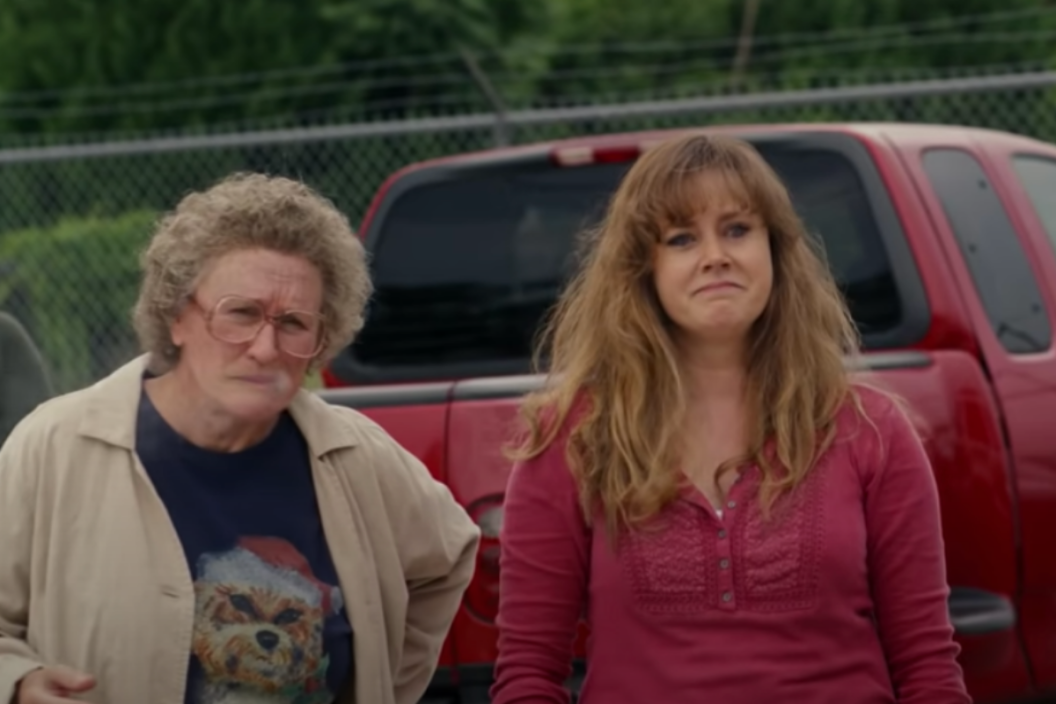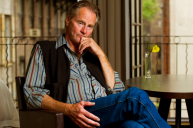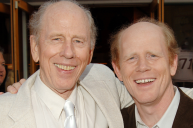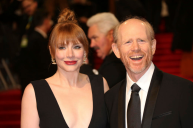Videos by Wide Open Country
Ron Howard's latest film Hillbilly Elegy was recently released on Netflix and it has a lot of people talking. Love it or hate it, people have very specific opinions about the film and its story as a whole.
The movie follows J.D. Vance and his dysfunctional relationship with his drug-addicted mother, crass grandmother, and other family members as they move from their home in Kentucky to suburban Ohio. It analyzes the idea of the American Dream as Vance moves from a childhood in poverty raised by "rednecks" to becoming a graduate of Yale Law School. His childhood was filled with trauma, tough love, chaos, but ultimately he comes out on top joining the marines, and later getting two college degrees.
Here's everything you need to know about this new film.
1. It's inspired by a true story
J.D. Vance's bestselling memoir, like the film, followed his white working-class upbringing and Appalachian roots as well as his experience growing up in Middletown, Ohio. The film captures his story in a series of flashbacks to his childhood, highlighting his family's Appalachian values, commenting on how he feels about the welfare system from his current perspective and dramatic details of his family members -- from drugs and alcohol to failed relationships.
2. Hillbilly Elegy was written by an Oscar nominee
Screenwriter Vanessa Taylor was hired to write the script after Ron Howard's production company purchased rights to the film. She has previously written the Meryl Streep and Tommy Lee Jones film Hope Springs, the young adult dystopian Divergent, and received an Oscar nomination for Shape of Water with Guillermo del Toro.
3. It has a stacked cast
Glenn Close stars as Mamaw, the foul-mothed matriarch of the family who eventually becomes Vance's primary guardian and Bo Hopkins plays her husband, Papaw. Amy Adams plays Vance's mother Bev and Haley Bennett plays his sister Lindsay. Gabriel Basso and Owen Asztalos play the adult and child version of J.D. Vance, respectively. Freida Pinto portrays his adult girlfriend Usha. With so many talented actors in one film with an Oscar-winning director leading the helm, it seems likely that this film was made to be an awards season candidate.
4. Vance's book was a bestseller, but received a lot of negative criticism
Though Vance's story immediately became a New York Times bestselling hit, there were a lot of people that were really upset by his take on middle America, especially those with Appalachian roots. Part of the issues people had started with the full title of the memoir, Hillbilly Elegy: A Memoir of a Family and Culture in Crisis.
According to the New York Times, Dwight B. Billings, a professor emeritus of sociology and Appalachian studies at the University of Kentucky said, "It is one thing to write a personal memoir extolling the wisdom of one's personal choices but quite something else — something extraordinarily audacious — to presume to write the 'memoir' of a culture."
Read More: Ron Howard's Net Worth: Being Opie Led to a Life of Success
Sarah Jones wrote about the memoir with the New Republic, criticizing the way he described the plights of his family as well as middle America.
"Elegy is little more than a list of myths about welfare queens repackaged as a primer on the white working class. Vance's central argument is that hillbillies themselves are to blame for their troubles...And he isn't interested in government solutions. All hillbillies need to do is work hard, maybe do a stint in the military, and they can end up at Yale Law School like he did. 'Public policy can help,' he writes, 'but there is no government that can fix these problems for us ... it starts when we stop blaming Obama or Bush or faceless companies and ask ourselves what we can do to make things better.'"
5. When the book was released in 2016, Vance made ties to connecting why Trump won the election
The memoir explained what things were like in the daily lives of white working-class America in the rust belt of Ohio and explained that they feel a huge disconnect from the rest of the nation. Vance initially underestimated how many copies would be sold, but as soon as ties to Trump were made, Democrats and Republicans alike picked up the book to better understand Trump's voter base.
"The people who expected, in some ways, their children and their grandchildren to live much better lives, have found that, at the end of the day, poverty was the family tradition," Vance told CNN.
"Even though Donald Trump says a lot of outrageous things, they see him as the person who's taking that battle to D.C, " he added.
6. Netflix spent a lot of money winning the rights to the project
After Ron Howard's company Imagine Entertainment purchased the rights to Vance's memoir in 2017, the streaming platform spent a whopping $45 million in a bidding war to fund the film. It seems Hollywood was pretty intent on bringing Vance's story to the big screen ASAP.
7. People already have a ton of opinions after the film was released on the streaming platform
The feedback is literally all over the map. Some people hate it, some people like it, but you know what? It's generated a lot of attention one way or the other!
Well, I don't understand all the hate #HillbillyElegy is getting. It's not mind blowingly amazing but it's a solid movie. Amy Adams and Glenn Close give great performances and I would like to give props to Gabriel Basso who was great as well.
— Mario (@notSuperMario1) November 24, 2020
I really enjoyed #HillbillyElegy. Growing up lower middle class, I knew these characters. They are not caricatures. It felt very real, not stylized. I think people are too hard on the film.
— Megan McLachlan (@heydudemeg) November 25, 2020
HILLBILLY ELEGY is a mess. It has a few great performances and a solid musical score by Hans Zimmer, but the narrative and messaging it's going for is handled in a very weak way, and it's also a pretty extreme case of Oscar bait throughout the entire runtime. #HillbillyElegy pic.twitter.com/Yd5T19rkHs
— Shaurya Chawla (@_ShauryaChawla) November 24, 2020
My disdain of #HillbillyElegy is no secret. A terrible mischaracterization of an entire culture by someone who is more concerned with profits than creating positive change. #Appalachia doesn't need you @JDVance1 https://t.co/asVuXn7yzr
— Chris Salyers, DHSc (@rcsalyers) November 25, 2020
Now Watch: 8 Things You Didn't Know About Graceland
https://rumble.com/embed/u7gve.v8rk4b/




